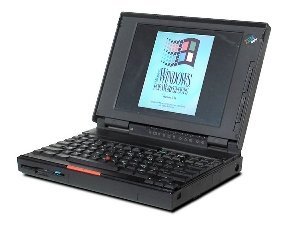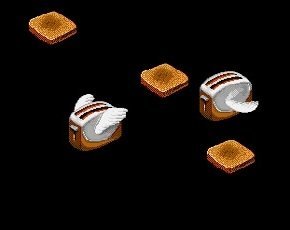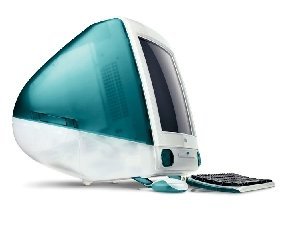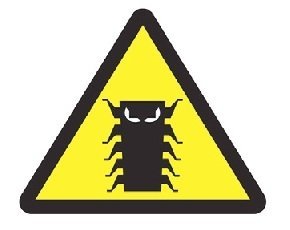The channel of the 1990s
Simon Quicke revisits the events that made the headlines during MicroScope's coverage of the channel in a decade of mergers, acquisitions and the millennium bug
In our second look back over the years MicroScope has been covering the channel, we move into the second decade of the magazine’s history with the 1990s. It was a decade that started with a tough recession and ended with the industry buoyed by the panic surrounding the millennium bug.
But plenty happened in the industry in-between, as you will see as we take another trip down memory lane.
1990
January – June
Bahrain-based investment group Investcorp pays £11m for a 30% stake in Computacenter. Founders Peter Ogden and Philip Hulme still own 36%.
Frontline has several takeover offers on the table. Suitors include Computer 2000 and Metrologie.
 Compaq UK reports its first ever profit losss in the fourth quarter.
Compaq UK reports its first ever profit losss in the fourth quarter.
IBM unveils its RS/600 workstation line, saying it wants to be the world’s “largest revenue product in Unix”.
Figures from Dataquest show UK PC shipments reached a record 1.17m units in 1989.
ICL lays plans to push its PC range through distribution, appointing Control C, Barron McCann, PCI and Eltec.
After weeks of rumour, it is confirmed Computer 2000 is taking a 49% stake in Frontline with an option to extend its holding.
An equally significant merger is announced between Lotus and Novell but never reaches completion.
Apricot’s hardware arm is sold to Mitsubishi Electronic for £39m cash. Apricot’s software and services arm continues operations as ACT Group.
One of the longest running rivalries in the IT industry kicks off as Intel files an injunction to prevent AMD selling its own version of the 80287 math co-processor.
The Lotus/Novell merger grinds to a halt because of a failure to agree a post-merger corporate structure.
Microsoft launches Windows 3.
July-December
SCC snaps up the UK business interests of French reseller Asytel.
Pegasus sells its Sphinx Unix distribution operation to Vistec for not more than £200,000 in cash, a year after Pegasus paid almost £2.75m for the company.
DEC reports its first ever quarterly loss of $256m.
Compaq continues to prevaricate on which company will supply it with Risc chips.
IBM watchers look forward to the creation of an AS/400 dealer channel after the vendor announces a desktop model will be ready in 18 months.
Lotus trashes its long-standing relationship with WordPerfect after paying $65m for word processing specialist Samma, developer of Ami Professional.
Apple CEO Michael Spindler is made company president.
Mounting debts at Logitek lead to speculation it will have to get rid of its Azlan subsidiary. Debts of £9m mean the company has a gearing of 180%.
1991
January – June
Logitek announces plans to merge its three distribution arms, including Azlan, under a single identity, following a series of financial problems including a suspension of its shares from the stock exchange the previous November.
Apple is looking at debts estimated between £1m and £2m, following the collapse of its largest dealer, CSS.
Jamie Minotto pops up again as commercial director of Commodore.
Troubled Ferrari Holdings slides into administrative receivership. Its largest shareholder, Singer and Friedlander, is believed to be facing a loss of £14m.
UK distributor Software Limited sells out to US giant Ingram Micro, giving it a UK base. Software Unlimited’s boss Alistair Handyside says he feels “well cash rich”
UK distributor Software Limited sells out to US giant Ingram Micro, giving it a UK base. Software Unlimited’s boss Alistair Handyside says he feels “well cash rich”.
Amstrad lays off 40 members of staff, including managing director Barry Young. Peter Roback, software development manager and a cousin of chairman Alan Sugar, is also a casualty.
Joe Hemani leads an MBO of Business Technology Group’s Westcoast subsidiary. The MBO team, which also includes Harry Walker and Rick Jones, pays about £2.3m.
Jamie Minotto quits Commodore after four months.
July – December
Apple and IBM announce a deal to “transform the face of the micro market”, agreeing to cooperate on Risc development and build an operating system (OS) together.
A few weeks later Microsoft pulls the plug on OS2 version 3 and announces something called Windows NT to take its place.
Borland takes over rival Ashton-Tate in a $440m deal which means the end for dBase.
Novell announces plans to take over Microsoft’s old OS rival Digital Research for $75m.
Ingram opens takeover discussions in the UK with Mirai Networks, which is headed by former Persona sales manager Rob Johnson.
Frontline founder John Weatherhead cuts his links with the distributor.
The UK is said to be on the brink of a new era in PC retailing as Jan Murray’s Vision Technology reveals plans to open a computer superstore called PC World.
IBM is reported to be planning a shake-up of its pricing and channel policy to win back market share from Compaq.
Apple slashes margins across its range to a flat 25% and announces deals with Dixons and PC World.
MicroScope reveals IBM plans to source low-end machines from the Far East and resell them under the Big Blue badge to counter the clone threat.
1992
January – June
Interquad buys Novell distributor Micro Macro.
IBM announces the biggest loss in corporate history: $2.8bn for the year to December 1991.
Frontline opens negotiations to acquire CAD and workstation specialist Datech.
 Toshiba and Compaq are struggling to supply dealers with enough kit.
Toshiba and Compaq are struggling to supply dealers with enough kit.
IBM is on the brink of launching its low-end Ambra clone, but there is talk the PC business is doing its best to scupper the launch. One source talks of “open civil war” between the camps.
Frontline upsets its dealers by giving advantageous terms and conditions to Jan Murray’s PC World business.
In the US, gunmen kidnap Adobe president Charles Geshke and demand a $650,000 ransom Geshke is freed after five days by a SWAT team.
Apple reveals its Newton PDS product.
July-December
Jamie Minotto is on the move again, this time to Pegasus.
ICL rips up the distribution rulebook by buying Technology Plc. The £57m deal hands over control of the vendor’s PC strategy to the Warrington-based reseller/distributor.
Wang slides into Chapter 11 after IBM backs out of an agreement to continue supporting the ailing microcomputer specialist.
IBM is forced to kill off its green scheme to refurbish and sell old PCs because pricing for new machines has plummeted.
Embattled Amstrad boss Alan Sugar offers to take the company private.
The collapse of Reading-based Actionbyte Distribution leaves distributors and vendors with substantial debts.
The pan-European ideal takes a dent when German-based Adcomp, which has recently signed a pan-European deal with Novell, collapses into receivership.
A company called Icon appears out of nowhere with plans to open a chain of superstores.
ComputerLand Europe scraps its European distribution operation, reducing its staff to 18.
Apple dealers are disgusted by its deal with Ryman, which results in machines being pushed through retail at a 15% loss to the vendor.
1993
January – June
Long-time Apricot dealer Computerworld goes up for sale after the administrators move in. The company is eventually sold off piecemeal to Fraser Associates and a series of MBO teams.
P&P announces it is pulling out of distribution, sparking a scramble to clinch supply contracts with its reseller arm. The wholesale unit eventually went to Merisel.
Superstore retailer Icon goes into liquidation after running up debts of £1.7m in just seven weeks, a feat one critic suggests should go in the Guinness Book of Records
Compaq is expected to establish a direct operation in the UK after launching a telesales arm in the US.
Apple comes under fire for offering to take a stake in troubled dealer EIT Group. The dealer’s shares have already been suspended and it has successfully applied for an administration order.
New IBM CEO Lou Gerstner stops plans to sign off the PC Company as a separate corporation.
Superstore retailer Icon goes into liquidation after running up debts of £1.7m in just seven weeks, a feat one critic suggests should go in the Guinness Book of Records.
July – December
Top-ranking IT companies launch a research campaign to find out why so much of their advertising campaign and promotion is ineffective.
IBM plunges its PC channel into confusion when it reveals it will not handle systems based on the PowerPC chip.
Dixons consolidates its position on the UK high street when German retail giant Vobis scraps plans to enter the UK in favour of supplying Dixons instead.
Compaq appears ready to scrap plans for a direct sales operation in Europe.
Suitors line up as Apple prepares to appoint a distribution partner for its Macs.
Azlan announces plans to float on the stock market and raise close to £40m, two years after an MBO team acquired the company for £6.1m.
John Sculley leaves Apple after ten years, resigning from the chairman’s post three months after losing jobs as CEO and CTO.
Microsoft overhauls its channel strategy and forces most of its resellers to deal with distributors rather than direct.
Distributors approach the EC to check whether restrictive vendor contracts are legal.
1994
January – June
Technology starts the year by being pulled further into the ICL orbit and brought under the control of its European operation.
Sun gives up its ambitions to sell low-end workstations through PC dealers.
Sage sets itself against the industry trend by raising prices on its highend products.
Metrologie withdraws from direct sales by putting a “for sale” sign up at its Rapid Recall arm.
 Retail is the buzzword as Merisel, Ingram Micro and Frontline reveal plans to target the consumer market.
Retail is the buzzword as Merisel, Ingram Micro and Frontline reveal plans to target the consumer market.
“One or two resellers had to lie down after we told them,” claims Compaq UK marketing manager David Clarke after announcing plans to double the vendor’s marketing fund.
Lotus pulls out of developing for the Mac platform.
Commodore’s parent company goes into liquidation.
Compaq opens up its channel by appointing Ingram and Ideal as UK distribution partners.
P&P buys Computers for Business, one of the largest retailers in Scotland, for more than £6m.
Elonex ropes in industry stalwarts Steve McCall and Jamie Minotto to boost its management portfolio as it prepares for flotation.
Computer 2000 AG gives up its independence to become a subsidiary of German industrial giant Viag.
July – December
Jamie Minotto leaves Elonex after a row over marketing strategy.
Novell reveals plans to combine Netware and Unix into a single operating system, SuperNOS, by 1996.
Distributors predict a bloodbath as Novell slashes channel discounts by five points.
IBM, Motorola and Apple lay the groundwork for the PowerPC platform, promising to ensure the Mac, OS/2 and NT platforms are all ported to the chip.
Amstrad withdraws from the retail channel, with chairman Alan Sugar launching a characteristically scathing attack on disloyal dealers who are only interested in selling “onsite warranty deals you don’t really need”.
Troubled Mac dealer KRCS begins to break itself up in a deal brokered by Apple.
IBM causes Intel’s stock price to slip when it claims Pentium chips are affected by a bug that means they can’t count.
1995
January – June
Apple boss Michael Spindler admits it has made mistakes over inventory, costs and the Newton as the vendor reveals the first companies to clone the Mac.
Merisel revives plans to take on franchisees to extend its European operation.
Persona is hauled into the high court by Novell after being accused of importing grey Netware products. The distributor has already been frozen out of the vendor’s channel after an earlier incident.
IBM begins encouraging resellers to source grey products from the US in a bid to overcome its supply problems
IBM imposes allocation procedures after admitting it is unable to overcome product shortages in the short term.
Retail distributor Gem is taken over by Sharptext in a £4.5m deal.
Merisel launches a worldwide purge of suppliers to streamline its operation after reporting a fourth quarter loss.
IBM begins encouraging resellers to source grey products from the US in a bid to overcome its supply problems.
In a rare display of teeth, the US Department of Justice blocks Microsoft’s proposed takeover of accountancy specialist Intuit.
IBM launches a spectacular $3.3bn hostile takeover bid for Lotus, which is rejected. The deal goes through when Big Blue ups the price to $3.6bn.
July – December
Compaq infuriates resellers by proposing penalty charges for direct partners which fail to settle their accounts in 30 days.
IBM creates a dedicated channel group in its latest restructure.
Former Frontline boss Mark Mulford decamps to the US, along with C2000 co-president Steve de Windt, to turn around Ameriquest.
Windows 95 formally ships with the biggest barrage of hype ever seen in the industry.
IBM reveals it will slash the number of directly supplied resellers, while Compaq wants to extend late payment penalties to distributors.
IBM boss Lou Gerstner lends his support to Oracle CEO Larry Ellison’s blueprint for a stripped-down PC called the network computer.
1996
January – June
Sun is tipped as a potential buyer for Apple, but the deal reportedly founders on price. Sony and IBM are also named as possible suitors.
German retail giant Vobis unveils plans for a chain of stores in the UK in a bid to play catch-up with home market rival Escom.
Troubled Wakebourne sells part of its maintenance business to Kalamazoo as observers expect it to report a loss for 1995.
 Apple boss Michael Spindler is forced out of the company as Mac watchers prepare for more job losses.
Apple boss Michael Spindler is forced out of the company as Mac watchers prepare for more job losses.
Problems appear to deepen at Merisel, where veteran chairman and chief executive Mike Pickett resigns. A week later, the distributor begins seeking waivers on its loans after admitting losses for 1995 will be larger than expected.
UK services group Data Sciences scraps its planned flotation after accepting a “compelling” £95m takeover bid from IBM.
Metrologie is preparing a bid for Olivetti’s UK software distribution organisation after Ingram walks away from a potential deal.
Michael Spindler’s replacement at Apple, Gil Amelio, outline his plans for the company at CeBit.
Vobis switches tack again by revealing plans to build a chain of superstores.
Cisco ups the ante in the networking market with a $4bn takeover of Stratacom.
Mounting difficulities at Escom force the retailer to put most of the stores it acquired from Rumbelows up for sale. The move coincides with the end of a rent-free period on the sites. A month later, Escom closes 65 stores.
July – December
GE steps up its European invasion by taking over Germany’s biggest reseller CompuNet.
Escom files for bankreputcy protection and its UK subidiarry collapses into receivership.
The channel is stunned as Sage announces a takeover bid for fierce rival Pegasus. The deal comes under scrutiny from the OFT following a complaint from a Pegasus reseller.
Merisel gains breathing space by selling its non-US operations to Florida-based CHS.
Pegasus pulls the plug on negotiations with Sage after deciding the takeover will be blocked by the OFT.
Mac specialist Callhaven spirals into receivership with debts of around £3m after a rescue deal fails.
SME becomes the new buzzword as Cisco seeks resellers to sell into this “unexplored market”.
Mark Mulford, recently returned from the US, is tipped to become managing director of Datrontech.
1997
January – June
Informix launches court action after its team of top developers defects to Oracle.
HP suffers a shortage of toner cartridges.
Compaq undercuts rivals by selling servers for less than £1,000.
Intel admits its inability to produce sufficient Pentium Pro chips.
Viglen’s boss admits the direct PC vendor could become a takeover target when it floats as part of Amstrad
3Com buys US modem giant US Robotics in a $6.6bn share swap.
Compaq unveils its dead-on-arrival policy to penalise resellers that fail to diagnose faulty machines properly.
IBM rewrites its leasing rules with a cost-per-seat scheme.
ICG battles with GE Capital over worldwide customers as they reach the end of an agreement to cooperate on global accounts.
Viglen’s boss admits the direct PC vendor could become a takeover target when it floats as part of Amstrad.
CHS plots a European invasion for its services division.
July - December
A court rejects a winding-up order attempt on Granville Technology.
Compaq buys Tandem.
Gilbert Amelio resigns from his post as chairman and CEO of Apple.
Compaq tries to stop its resellers selling Dell kit.
IBM gives country managers the freedom to set prices in their region.
HP sends auditors into Ingram Micro amid claims it is loss leading the vendor’s products, then follows up the visit with one to CHS.
Chronic shortages undermine HP’s aggressive push into the PC market.
Compaq threatens to slash its elite dealer tier across the globe.
IBM reduces its leasing threshold by 25,000 to 5,000 to lend weight to an imminent assualt on the small business market.
Low stocks hit 3Com’s UK channel as vendors cut channel inventories.
AST staff face the axe as the company announces worldwide job cuts.
1998
January – June
Mike Lunch, head of IBM’s UK PC business, gives up the role and the vendor scraps the position.
Microsoft acquires Hotmail for an undisclosed sum. The company is valued at up to $400m with 9.5m subscribers.
AST brings down the curtain on 12 years in the PC market.
Dell launches a 3,000+ SME package bucking the trend by some rivals to sell servers for below £1,000.
 Compaq refuses to hand assembly to the channel. IBM and HP implement channel assembly schemes.
Compaq refuses to hand assembly to the channel. IBM and HP implement channel assembly schemes.
Dixons buys SCC’s ailing Byte chain of stores for £5m.
Computacenter begins flotation on the London Stock Exchange.
IBM admits resellers may lose global customer to direct deals.
Microsoft changes its licence plan from 30 to 14 days, causing administrative nightmares
throughout the channel.
July – December
The US government claims the effects of the millennium bug on military systems could lead
Saddam Hussein to re-invade Kuwait.
Compaq UK indulges in a bout of executive bloodletting following the acquisition of Digital.
IT resellers throughout Europe are warned they are at risk of going bust if they fail to react to the Euro and e-commerce.
C2000 unveils SME online ordering.
Xerox declares war on HP with a £600 trade-in offer for its rival’s printers.
IBM announces plans to take its UK reseller sales model worldwide.
Apple accuses Microsoft of threatening to cancel the release of Office 97 during the Department of Justice versus Microsoft case.
Software vendor Novell cuts its European distributors from 102 to 60 in its final stage of a year-long review of its distribution policy. Among those dropped are ilion and Ingram.
Oracle merges its services, products and alliances divisions after the segmented approach proves “confusing to its channel and users”.
1999
January – June
UK resellers are warned they risk losing business as internet-based dealers prepare to slash their margins in favour of a fixed charge.
Red Hat signs a reseller agreement with IBM to install an upgraded version of the operating system.
GE Capital IT Solutions revives its UK acquisition drive and targets 50 companies.
HP warns Hamilton Systems, Morse Data and Computacenter to adapt or they "will not survive"
IBM and Dell sign a $16bn OEM deal.
CHS is threatened with 20 class action lawsuits from law firms across the US and a few months later axes 700 jobs.
HP warns Hamilton Systems, Morse Data and Computacenter to adapt or they “will not survive the next couple of years”.
IBM prepares to overhaul its channel assembly programme in Europe to bring it in line with its US operation.
Dagtrontech, InterX and Northamber all issue profit warnings in the space of two days.
July – December
GE Capital IT Solutions enters crisis talks with Compaq after accusing the vendor of trying to muscle in on its customers.
SCC acquires Elcom to strengthen its position in the South of England.
Landis’s bid of £26.8m for ilion is rejected as “insulting and totally unacceptable”.
Pressure grows on Compaq UK after Dell knocks it off the UK number one spot.
Thirty staff are made redundant as Principal Distribution collapses into receivership.
IBM’s networking line is sold to Cisco, leaving IBM’s networking resellers in limbo.
Concerns are raised over the financial future of Datrontech after a backer withdraws credit insurance.
HP reviews its sales model, leading to the blurring of lines between direct and indirect routes to market.
CHS Electronics’ European empire collapses after a string of subsidiaries go into receivership.
Angry Apple resellers form an anonymous pressure group.
Computacenter makes 100 staff redundant from its newly acquired Metrologie business.
IBM axes its authorised assemble partner scheme.
Compaq revamps its partner strategy, but fails to explain how it works.
The IT industry prepares for the impact of the millennium bug...
Next time, our trawl through the history books comes bang up to date as we revisit the first decade of the 21st century, the noughties, and look back at some of the massive changes the channel has seen in the past 12 years.








